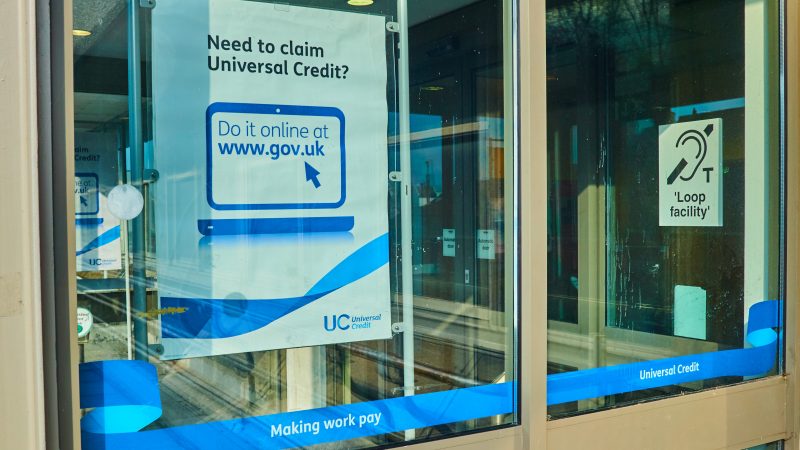
When asked how people can be expected to get by on a local furlough scheme that covers only 67% of their wage, or the job support scheme which covers 77%, government ministers will say – as the Work and Pensions Secretary did on Monday afternoon – that “if people do come under a certain threshold, they may well be eligible for Universal Credit to help them with a top-up”. Boris Johnson himself (wrongly) told people in a Covid press conference last week that workers in a business forced to close will get 93% of their wages, “whatever happens”, through combined support from UC and the local furlough scheme recently announced.
The constant mentions of UC by ministers shows how much they want the public to see it as a viable alternative stream of support in the pandemic. The numerous flaws with the benefit, such as the five-week wait and the benefit cap, mean it isn’t – but UC has frequently formed part of the response when the Conservatives are challenged on the level of Covid support available. And this begs the question: why scrap the uplift? Governments elsewhere are planning their Covid support for the long term. Recognising that Covid could be around for a while, many are committed to providing state support for the next two years. Meanwhile, the UK government is preparing to take away its limited uplift in benefits.
The government decided at the height of the pandemic in March to raise the standard allowance for UC and the basic element in Working Tax Credit by £20 a week for a year. This resulted in an income rise of just over £1,000 per year, with the rate for a single claimant over the age of 25 up from £317.82 to £409.89 per month. It was a limited increase – not available to those still on legacy benefits: child tax credit; housing benefit; income-related employment and support allowance; income-based jobseeker’s allowance; and income support – but it is a change described by a group of charities recently as a “lifeline” for many in the pandemic. The Tories are now getting ready to withdraw that lifeline.
Labour last month backed a campaign that brought together over 50 organisations and wrote to Rishi Sunak calling for the increase to UC to remain past April next year. The group of charities, food bank providers, disability groups, trade unions and others described how the increase has helped families “keep their heads above water” during the Covid crisis, and warned that removing it means “this good work risks being undermined”. The demand has been echoed today in a report published by a parliamentary committee, which said the government should “maintain the £20 a week increase in standard allowance for UC and Working Tax Credit”. But the government has so far rejected these calls and refused.
The rolling back of UC, at the earliest opportunity, is underlined by a deep ideological aversion to state intervention. With this one policy, the Tories are going to bring crushing insecurity to millions of families. People living in 16 million households across the country will see their income slashed by £1,040 in the middle of the worst recession in 300 years. Half a million people will be pushed deeper into poverty, while 700,000 more people will be pushed below the poverty line. That’s 700,000 more people unable to pay their rent, buy food, heat their homes or buy essentials for their children.
Only in the face of an unprecedented number of applicants did the government concede that the support for people who lose their jobs is not enough. And they don’t want us getting used to the idea that you should be able to survive even when your income is dramatically reduced; that workers might be able to support themselves, to be able to live, when not being actively exploited by the market.




More from LabourList
‘Labour promised to make work pay. Now it must deliver for young people’
‘Council Tax shouldn’t punish those who have the least or those we owe the most’
Two-thirds of Labour members say government has made too many policy U-turns, poll reveals